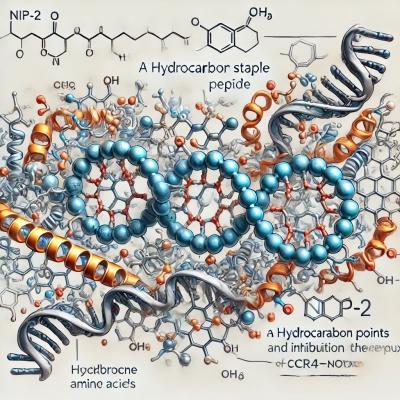
A major breakthrough has been made in preserving mRNA stability, a discovery that could revolutionize cancer treatments and anti-aging therapies. Traditionally, mRNA (messenger RNA) is quickly broken down in cells through a process called deadenylation, which involves the removal of the poly(A) tail, a protective structure that helps mRNA survive long enough to carry out its function. This degradation process is largely controlled by a protein complex known as CCR4-NOT.
In this new study, researchers developed a peptide called NIP-2, which inhibits a specific subunit of the CCR4-NOT complex, NOT9. The role of NOT9 is to recruit disease-related mRNA sequences to be destroyed by the complex. By blocking NOT9 with NIP-2, the team effectively prevents the mRNA from being broken down, which can have profound benefits in medical treatments.
For cancer therapies, this discovery is particularly exciting. The stabilized mRNA can allow cells to produce therapeutic proteins that help the body’s immune system recognize and destroy cancer cells. This process could lead to more targeted treatments with fewer side effects compared to traditional methods like chemotherapy, which harms both cancerous and healthy cells.
Additionally, the implications for anti-aging are significant. As people age, their cells lose the ability to repair themselves efficiently, partly due to the degradation of essential mRNA. By preserving the mRNA, researchers hope to improve tissue regeneration and slow down the aging process. This approach could also reduce the effects of age-related diseases such as Alzheimer’s and Parkinson’s.
While this research is still in early stages, it presents a promising new approach to managing both cancer and aging. As scientists continue to refine this technology, the potential for personalized medicine, where treatments are tailored to individual patients based on their specific cellular needs, grows closer to reality. This discovery could pave the way for more effective and less invasive treatments in the future
